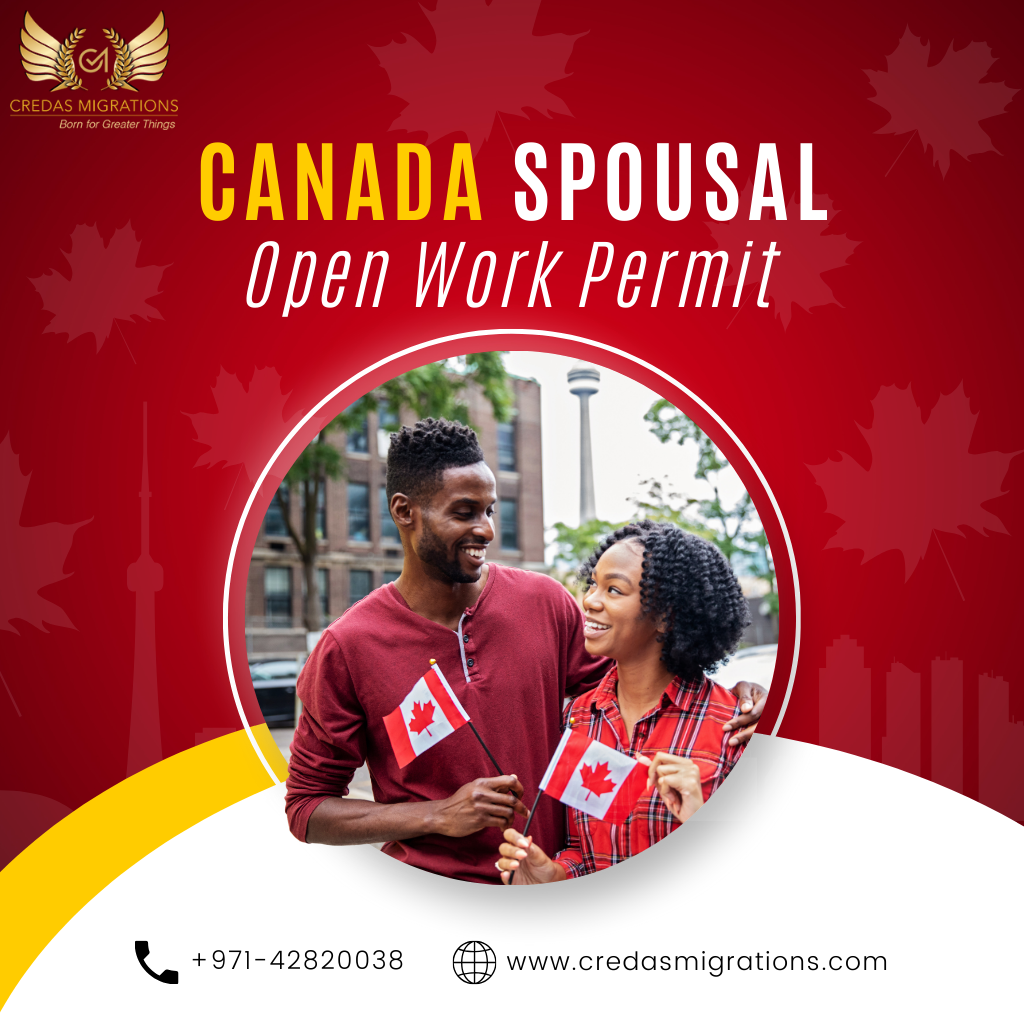Canada is synonymous with its welcoming immigration policies that made it possible for the spouses of people who work or study in Canada to get an open work permit. This is a huge advantage for many couples, who would otherwise be forced to live apart. According to a report from CBC News, Canada has one of the highest acceptance rates in the world for spousal refugee applications. However, in June, the Citizenship and Immigration minister Jason Kenney made it more difficult to get a spousal open work permit.
The Spouse Open Work Permit Canada was and still is one of the last chances to help couples remain together if the non-employed spouse is willing to look for employment in Canada. It may seem peculiar to consider that there was a time when this Open Work Permit for spouses was relatively easy to get, as it is now, but with more rules and requirements.
Workers’ rights are further enhanced because Spouse Open Work Permit is available to the spouse or common-law partner of a worker or student already in Canada. The new regulations involve additional scrutiny to ensure that newly arriving applicants for this permit meet the requirements and are not abusing the category.

The bar for proving a bona fide relationship with the sponsoring principal spouse or partner was once much lower, but the government still insists that it must be met. Since then, however, the documentation required to satisfy the requirement has grown. Now, to satisfy the requirement, couples must produce more photographs, account statements from joint bank accounts, or correspondence.
In addition, financial ability has emerged as a greater consideration. The sponsoring spouse or partner must now show that they meet minimum income thresholds that demonstrate their capacity to support their family while living in Canada. This is designed to prevent the possibility of an applicant coming to Canada without either the intention or possibility of working.
Another important change is the addition of language proficiency requirements. To qualify for Spouse Open Work Permit, applicants must meet a certain level of English or French proficiency since both languages are official languages of Canada. This requirement guarantees newcomers would communicate well in workplaces and integrate easily into Canadian society.
Moreover, applicants for a Spouse Open Work Permit must also undergo medical examination. This is part of Canada’s commitment to public health and ensuring that newcomers are not at risk of compromising the health and safety of Canadians.
These changes in rules reflect the Canadian government’s stance to uphold the integrity of the immigration system while still allowing families to come and thrive in Canada. By making the Spouse Open Work Permit more restrictive, Canada ensures that the system is not easily abused and that those who enter the country can contribute positively to the Canadian economy and society.
That’s why it’s important for couples contemplating applying for a Spouse Open Work Permit to learn the new rules and requirements, and to consider consulting with immigration agents or lawyers to help them navigate the process.
Frequently Asked Questions About Spouse Open Work Permit in Canada
The Spouse Open Work Permit Canada was and still is one of the last chances to help couples remain together if the non-employed spouse is willing to look for employment in Canada. It may seem peculiar to consider that there was a time when this Open Work Permit for spouses was relatively easy to get, as it is now, but with more rules and requirements.
Workers’ rights are further enhanced because Spouse Open Work Permit is available to the spouse or common-law partner of a worker or student already in Canada. The new regulations involve additional scrutiny to ensure that newly arriving applicants for this permit meet the requirements and are not abusing the category.

The bar for proving a bona fide relationship with the sponsoring principal spouse or partner was once much lower, but the government still insists that it must be met. Since then, however, the documentation required to satisfy the requirement has grown. Now, to satisfy the requirement, couples must produce more photographs, account statements from joint bank accounts, or correspondence.
In addition, financial ability has emerged as a greater consideration. The sponsoring spouse or partner must now show that they meet minimum income thresholds that demonstrate their capacity to support their family while living in Canada. This is designed to prevent the possibility of an applicant coming to Canada without either the intention or possibility of working.
Another important change is the addition of language proficiency requirements. To qualify for Spouse Open Work Permit, applicants must meet a certain level of English or French proficiency since both languages are official languages of Canada. This requirement guarantees newcomers would communicate well in workplaces and integrate easily into Canadian society.
Moreover, applicants for a Spouse Open Work Permit must also undergo medical examination. This is part of Canada’s commitment to public health and ensuring that newcomers are not at risk of compromising the health and safety of Canadians.
These changes in rules reflect the Canadian government’s stance to uphold the integrity of the immigration system while still allowing families to come and thrive in Canada. By making the Spouse Open Work Permit more restrictive, Canada ensures that the system is not easily abused and that those who enter the country can contribute positively to the Canadian economy and society.
That’s why it’s important for couples contemplating applying for a Spouse Open Work Permit to learn the new rules and requirements, and to consider consulting with immigration agents or lawyers to help them navigate the process.
Frequently Asked Questions About Spouse Open Work Permit in Canada
1. What is a Spouse Open Work Permit?
A Spouse Open Work Permit is employment authorisation issued by the Canadian government to the spouse or common-law partner of a foreign worker or student that allows them to work in Canada.
2. What are the Eligibility Criteria for a Spouse Open Work Permit?
The Spouse Open Work Permit is available for anyone who is legally married to or in a common-law relationship with a foreign worker or student already living in Canada. To qualify, you must meet the regulations and criteria set by IRCC.
3. Are There Any New Rules Regarding Spouse Open Work Permits in Canada?
Yes, recently these requirements have been tightened for obtaining Spouse Open Work Permit. Usually, proving a relationship, pledge and being able to support the spouse in Canada, language skills, and even health test are taken extremely serious into account.
4. How can I Prove the Authenticity of My Relationship?
You have the option to submit documents that prove your relationship is not sham, such as marriage certificates, photographs, joint bank account statements, or correspondence.
5. Are There Any Exceptions to the Language Proficiency Requirement?
People who cannot speak English or French due to physical, sensory, or mental disabilities and people who completed a programme at a publicly funded Canadian institutions in English or French are exempt from the language requirement.
6. How Can I Apply for a Spouse Open Work Permit?
You can apply for a Spouse Open Work Permit online or by mail. Be sure to read through all the requirements and submit all the documents needed.
7. Can I Renew my Spouse Open Work Permit?
Yes, as long as you still meet the IRCC eligibility requirements and conditions, you can renew your Spouse Open Work Permit.
8. Can I Apply for Permanent Residency While on A Spouse Open Work Permit?
Having a Spouse Open Work Permit does in fact act as a fast-track to permanent residency in Canada. You may be able to apply for permanent residency under various programs: Spouse or Common-Law Partner in Canada Class, Canadian Experience Class, etc.
In Conclusion,
While the changes to the rules make it harder to get a Work Permit in Canada, they could make the country's overall immigration system stronger and fairer. When the applicants are qualified and can provide to the Canadian community, Canada maintains its reputation for being an open country for immigrants and their families.
In Conclusion,
While the changes to the rules make it harder to get a Work Permit in Canada, they could make the country's overall immigration system stronger and fairer. When the applicants are qualified and can provide to the Canadian community, Canada maintains its reputation for being an open country for immigrants and their families.

